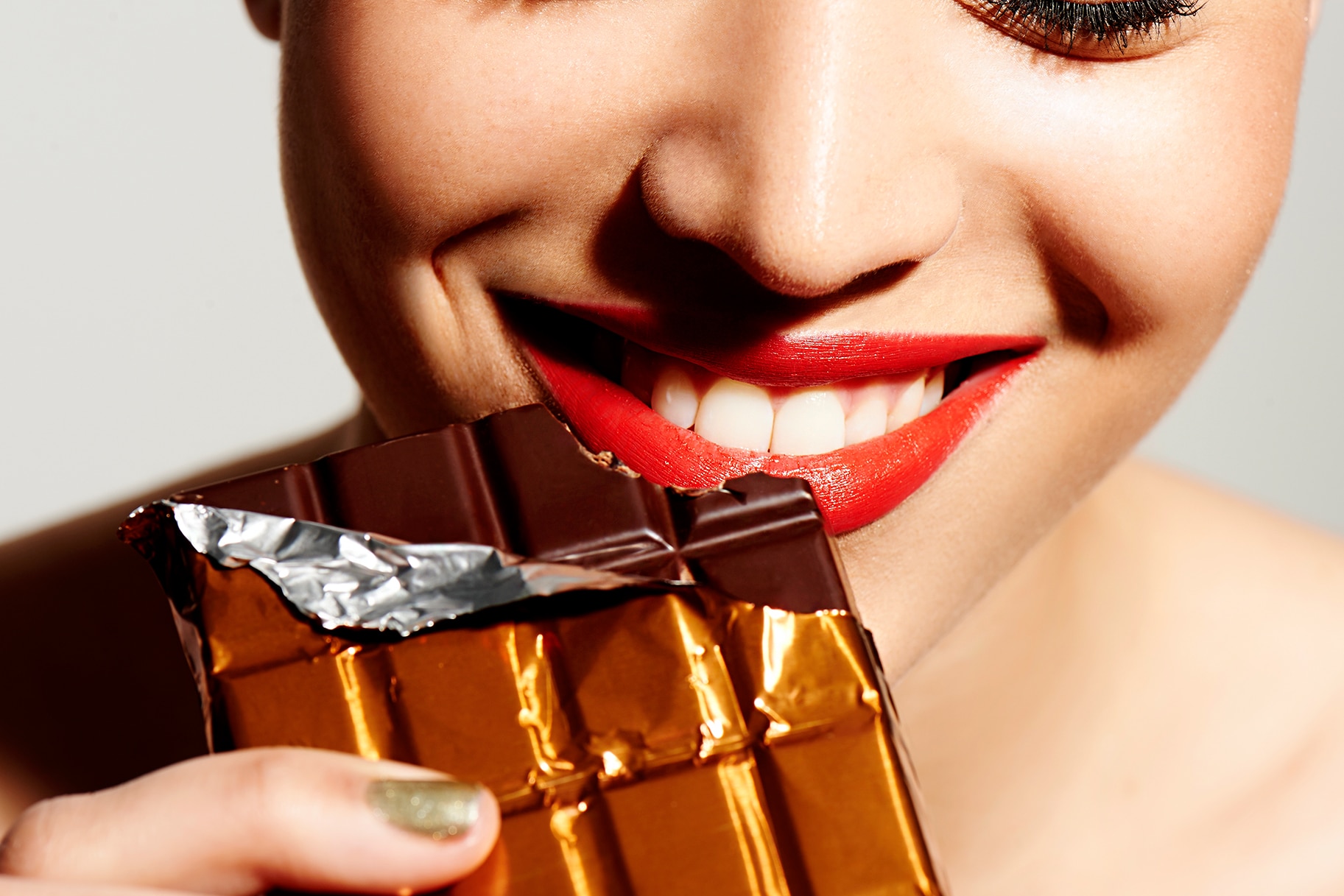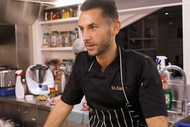
Create a free profile to get unlimited access to exclusive videos, sweepstakes, and more!
Sorry if This Messes Up Your Plan for Getting Lucky on Valentine's Day, But We Now Know That Chocolate Is Not an Aphrodisiac After All
A popular myth... sadly debunked.

Nearly 40 percent of women still believe that chocolate is an aphrodisiac... but sorry ladies: New research says it does nothing for us in the bedroom.
In the same study, researchers found 40 percent of millennial respondents deemed chocolate to be an aphrodisiac. The Mayo Clinic, however, claims there is very little evidence to support this claim.
"Although certain foods and supplements — such as chocolate, spicy food, and saw palmetto — are sometimes claimed to affect libido, research has shown them to be largely ineffective at producing a sexual response in men," Mayo reports, adding that sometimes even drugs have been added to sweets to make you believe they do assist in the bedroom. (What? Whoa!)
Indeed, "Certain products marketed as natural aphrodisiacs have also been found to contain prescription drug ingredients — such as sildenafil, the active ingredient in the erectile dysfunction drug Viagra — that aren't disclosed on the label."
Chocolate can still be romantic, however. Duh.
Valentine’s Day is traditionally the time for couples give chocolate to show their love; this leads back to the Aztecs thinking cocoa was their gods’ food of choice before sex.
Part of the common misconception also arises from the fact that chocolate (dark mostly) does have some health benefits. Regular chocolate intake is associated with a reduced risk of depression, cardiovascular disease, and contains anti-oxidate, which help with a variety of ailments and skin conditions. Still, experts say, it has no impact in female libido.
According to internist Larry Cheskin, M.D., director of the Johns Hopkins Weight Management Center, many aphrodisiac related foods work only in the mind. "There's all sorts of weird associations with food," he says. "But those would be mostly psychological effects rather than something that has a true physiologic effect."
Martha Hopkins, coauthor of InterCourses: An Aphrodisiac Cookbook, tells AARP: "You can choose foods that are better for your body, and that could help with your sex life… The act of cooking with someone else or for someone else says, 'I care about you. You're worth my time, and that's really the biggest turn-on of all."
Just ask Meghan Markle, whose soon-to-be-hubby Prince Harry proposed while cooking dinner.














